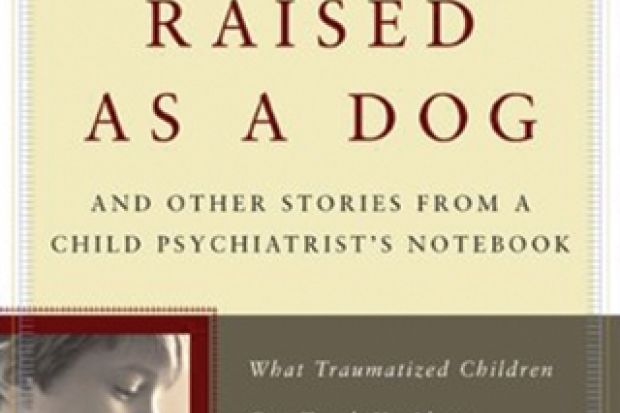Hazel Christie, lecturer in university teaching and learning, University of Edinburgh, is reading Bruce Perry and Maia Szalavitz’s The Boy Who Was Raised As a Dog: And Other Stories from a Child Psychiatrist’s Notebook (Basic Books, 2006). “How resilient are children? Can kids subjected to trauma physically, emotionally or psychologically bounce back? How can neuroscience cast light on their experiences? Case studies in this compassionate, heartbreaking book provide some answers as Perry reveals the powerful interplay between early brain development, childhood trauma and the possibilities for recovery.”

David Eastwood, vice-chancellor, University of Birmingham, is reading Richard English’s Modern War: A Very Short Introduction (Oxford University Press, 2013). “OUP’s ‘A Very Short Introduction’ is a brilliant concept, although volumes in the series sometimes disappoint. Not this. Profound thought and a compelling text explain why and how states, societies and peoples resort to ‘the awfulness of war’. English avoids glib generalisations because he knows too much and thinks too deeply. The text is a model of compression, which even finds time to explain Arsenal’s defensive tactics. Anyone who wants to understand wars and their legacies should read it, twice.”

Matthew Feldman, reader in contemporary history, Teesside University, is reading Dirk van Hulle and Mark Nixon’s Samuel Beckett’s Library (Cambridge University Press, 2013). “A welcome achievement, culled from Beckett’s library largely shelved, to this day, in his Parisian flat. The authors, youthful leaders in the field for precisely this kind of work, have penned a revelatory study for initiates and amateur Beckettians alike. Charting literary habits in numerous languages as well as philosophy, science, religion, art and more, this book merits wide readership.”

Stephen Halliday, panel tutor in history, Institute of Continuing Education, University of Cambridge, is reading Anne Sebba’s That Woman: The Life of Wallis Simpson, Duchess of Windsor (Phoenix, 2012). “The story of an adventuress whose adventure ran out of control, bringing sadness to many including, it would seem, herself. The main beneficiary of her miscalculation was Great Britain, which gained a monarch, George VI, better suited to the exigencies of war than an elder brother who cut a sad, indignant figure.”

R.C. Richardson, professor emeritus of history, University of Winchester, has been rereading Asa Briggs’ classic study Victorian Cities: Manchester, Leeds, Birmingham, Middlesbrough, Melbourne, London (Penguin, 1990). “This 1963 book helped to establish urban history as a field and embed it in a broader context. Six well-chosen contrasting case studies provide a platform for exploring changing attitudes to the urban phenomenon in the 19th century, as class stratification, industry, empire and a transport revolution ushered in new opportunities and challenges.”
Register to continue
Why register?
- Registration is free and only takes a moment
- Once registered, you can read 3 articles a month
- Sign up for our newsletter
Subscribe
Or subscribe for unlimited access to:
- Unlimited access to news, views, insights & reviews
- Digital editions
- Digital access to THE’s university and college rankings analysis
Already registered or a current subscriber? Login
